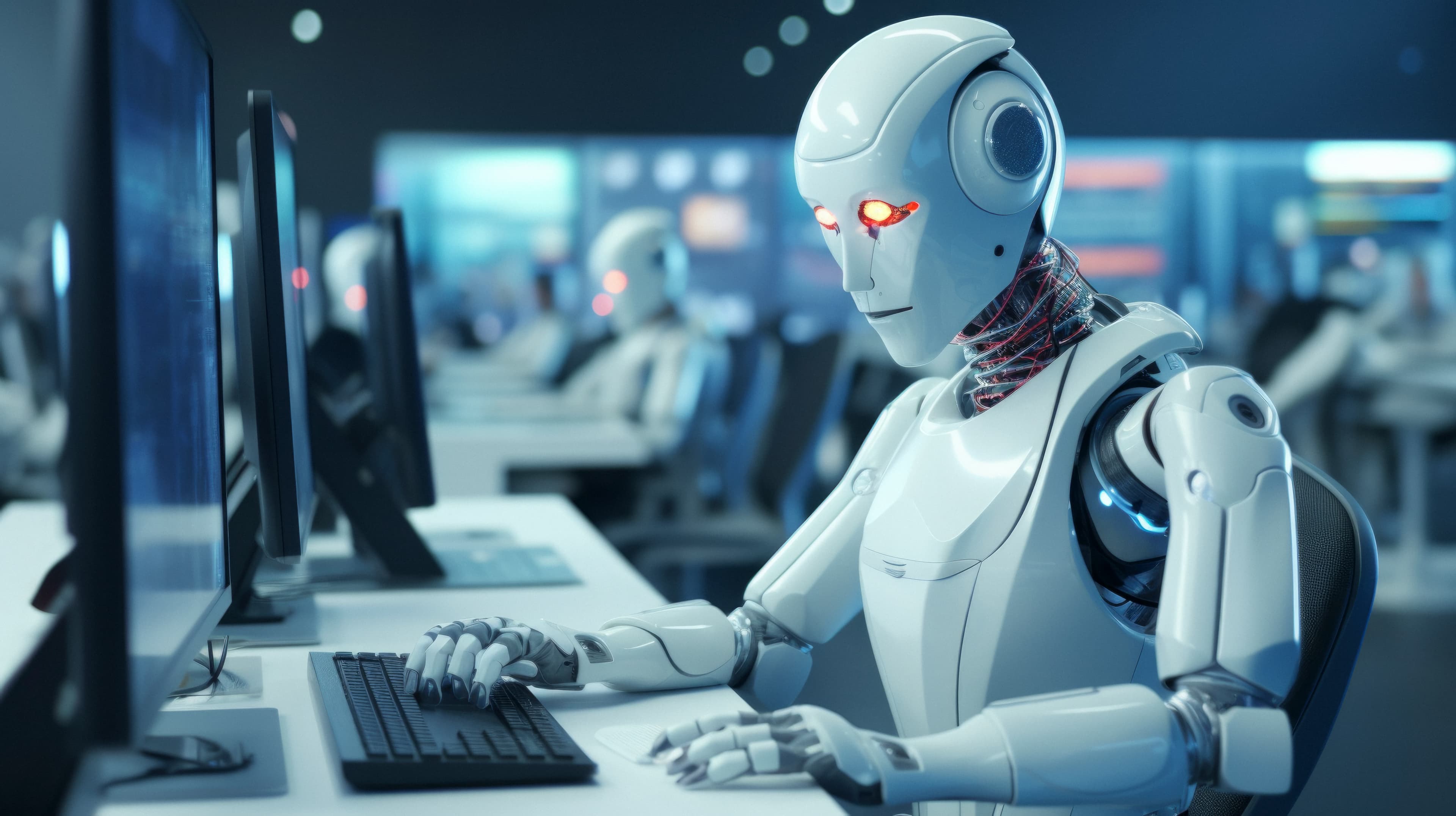
Will AI Replace Human Workers?
Artificial Intelligence (AI) has rapidly become an essential tool in various industries, revolutionizing the way we work, communicate, and interact with technology. But as AI continues to grow in capability, one burning question persists: Will AI replace human workers?
AI's Role in Enhancing Human Capabilities
Contrary to the fears that AI will replace jobs and make human workers obsolete, the reality is that AI is designed to act as a powerful teammate. AI technology enhances human abilities, taking on repetitive tasks, analyzing large data sets, and providing real-time insights that empower workers to make more informed decisions.
AI as a Supportive Tool, Not a Competitor
AI's most significant strength lies in its ability to work alongside humans rather than replace them. For example, in customer service, AI-driven chatbots handle routine inquiries, allowing human agents to focus on more complex problems that require empathy, creativity, and critical thinking skills.
- Task Automation: AI can automate mundane tasks, freeing up employees to work on strategic initiatives.
- Data Analysis: AI tools can analyze data in seconds, offering valuable insights that would take humans hours or even days to process.
- Predictive Insights: With AI's predictive capabilities, businesses can anticipate customer needs and make proactive decisions.
The Human Touch: Irreplaceable Skills in Customer Service
Despite AI's advancements, there are still essential human traits that machines cannot replicate. Skills like emotional intelligence, empathy, problem-solving, and adaptability remain exclusive to human beings. This is why the most effective customer service teams use AI as a tool to augment their capabilities rather than replace them.
AI-Powered Assistance in Real-Time
One of the most valuable aspects of AI in customer service is its ability to guide human agents in real-time. AI-driven tools provide live suggestions and information during customer interactions, helping agents respond quickly and accurately. This improves customer satisfaction by making interactions faster and more personalized while maintaining the warmth and understanding only a human can offer.
AI and Humans: A Perfect Partnership
The future of AI lies in creating synergy between human and machine intelligence. By blending AI's analytical power with human intuition, businesses can achieve higher levels of efficiency and innovation. Here are a few ways AI complements human capabilities:
- Augmented Decision-Making: AI processes data to provide actionable insights, but humans use their intuition and experience to make the final call.
- Creative Collaboration: While AI can generate ideas based on data patterns, humans drive creativity by thinking outside the box.
- Human-Centered AI Development: As AI becomes more integrated into our daily lives, the focus will shift toward creating AI that prioritizes human values and ethical considerations.
Embracing AI as a Collaborative Teammate
In a world where technology continues to evolve, businesses must embrace AI as a collaborative tool that enhances human capabilities rather than a threat that will replace them. Companies that integrate AI into their workforce can increase productivity, improve decision-making, and deliver better customer experiences without losing the critical human element.
Key Takeaway: AI Enhances, Not Replaces
AI's purpose is not to compete with humans but to augment their abilities, making tasks more efficient and empowering people to focus on higher-value work. By leveraging AI as a teammate, businesses can create a dynamic workforce that combines the best of both worlds—human creativity and machine precision.
Conclusion
While AI will continue to play a significant role in reshaping industries, it is not here to replace human workers but to empower them. By embracing AI as a collaborative partner, businesses can unlock new opportunities for growth, innovation, and customer satisfaction. AI is indeed a teammate that helps us work smarter, not harder.
What do you think about AI's role in the future workforce? Share your thoughts in the comments below!